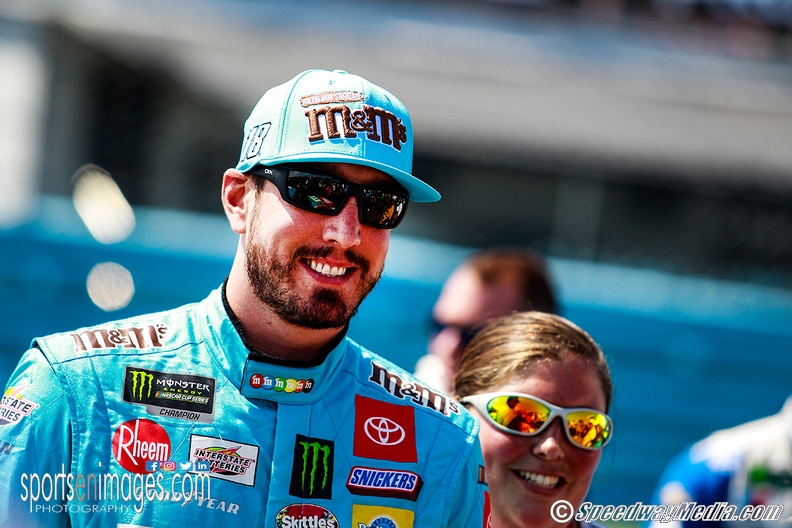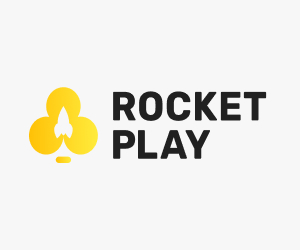Today’s generation of race fans may not know the name Greg Pollex. However, at the end of this interview, they will appreciate what he brought to the racing world and why his team was so successful during the late 90s and early 2000s.
In this week’s interview, Speedway Media catches up with former Busch Series Owners Champion and father of Sherry Pollex, Gregory Pollex. Pollex owned a Busch Series team called PPC Racing with NFL star and quarterback Mark Rypien. PPC Racing is most notably known for its success with Chad Little, Jeff Green, and Jason Keller. During this interview, Pollex talks about the rise of his race team, the struggles he faced early on and eventually closing up shop in 2007.
Before getting into NASCAR, the Michigan native shares what he was doing before his NASCAR heyday.
“I was always a car guy,” he said. “I was mechanically inclined. One day, I was going by the racetrack because I grew up in Northern Michigan and stopped in to watch a Dirt Late Model race, and thought, wow this is cool. After that, I built a racecar and started racing in 1970. I did that for about five years, but eventually, real life work makes it difficult and it was just my dad and I. We did really good for what we had, we didn’t have much. So, that was my background to racing. I obviously followed NASCAR and always watched the Daytona 500 and things of that nature.”
Pollex also talked about what interested him and drew him into being a NASCAR owner.
“I don’t practice law, but I put together a lot of financial plans on that side of the resolution,” Greg said. “One of the things I did was worked with a hospital and you know, people who lived off-shore set up these insurance companies owned by the hospital and doctors. It’s sort of a way to self-finance. I thought this makes sense and could work for NASCAR. I called NASCAR and said, ‘Hey, I want you to tell me how many drivers you have that have a college education.’ NASCAR says, “We got three.” They were Alan Kulwicki, somebody else and I don’t remember who the other one was, and Chad Little. By the way, Chad has a law degree. So I said, ‘Well hell if he has a law degree, he’ll understand what I’m talking about.”
“I got his contact information and I called Chad, he had a little bit of the concept of what I was trying to do, but immediately when I called Chad, his ears went to motion. In all honesty, he was better at it then I was. He sucked me into this deal and said look, I went to school at Washington State with Mark Rypien who played for the (Washington) Redskins. I think I can get Mark to help, so we formed the first company called Mark Rypien Motorsports. Mark didn’t do anything, except his name because it helped get us sponsors. That’s how we got started.”
Pollex went on to discuss the progression of the team.
“We had a little shop about 5,000 square foot,” he said. “Our first race was Darlington in March of 1993. We ran a limited scheduled that year with limited success. So in 1994, we decided we were going to get some sponsorship and run the full season and we’re still running V6. We go out at Daytona and finish third there. Then we had problems following that. We started wrecking and had some issues internal. I was spotting and I could see a lot of things, Bristol was one of them. We go to Bristol and we go behind the wall to fix the car and put a set of tires on to go back out. We’re hotter than a firecracker, I mean he (Chad Little) is just slicing and dicing. I told him, let’s be conservative of the other guys racing who can win because he was getting aggressive. The crew chief at the time threw his headset down and that was the end of him since I fired him for his attitude. I believe a guy by the name of Gary Cogswell and Harold Holly, I install them both as crew chiefs. I told them, hey we got to turn this around. Then we rattled off 10-12 top-10 finishes.”
It wasn’t until 1995 that he went to victory lane at Daytona after starting 42nd. Pollex described the events leading up to the win and how it took a few years for the significance of it to sink in.
“Before 1995, we were pretty damn hot by the end of the year. We finished like the top three in 1994. 1995 comes about and we have to change the 9 to 1 compression ratio on the motor. So, I have to find an engine builder. I found a guy named Mike Egge, who used to build engines out in California.
So here’s the story. We go to Daytona and I think 45 cars show up, and we were having some problems, I can’t figure out what’s going on. Finally in last practice, we had an in-car camera and I asked whoever was doing the race if I could sit on top of the box and watch. We thought we had an aero problem. I eventually said something to Mike Egge and said something is lacking, let’s back this thing up. So we go up three jets on the carburetor and it takes off flying.”
“Eventually, we get into the race and Chad is dodging wreck after wreck. We passed Mark Martin with two laps to go, Mark is pretty loose and he wrecked behind us. We obviously went on to win the race.
“It was amazing to win at Daytona. I’ll be honest with you, I didn’t know how to appreciate it. I didn’t know what it meant to me until the years passed.”
He then recalled the problems they faced that season.
“We went to Rockingham and you knew who the big deal was back then, Mark Martin. You couldn’t beat him if you’re not going to win. We went there and smoked them. It was a 200 lapper and led 177 laps. We were just awesome. Then we went to Richmond, leading all the laps there and the motor breaks. At Atlanta, we lapped everyone in the field except for Martin and Johnny Benson in the first portion of the race and then, we dropped a cylinder. We were still in the lead, but then we dropped another cylinder and fell out. So we had that kind of season, we probably could have won 12-14 races.”
The former Busch Series Owner Champion described what cost him the series championship in 1995.
“The biggest thing that happened that year was, everyone was catching us motor wise. Then NASCAR and Goodyear changed the tire. It was the last part of the season, Chad could not figure it out. He did not like the tire at all. We were winning and then kind of went down after the tire change. It was a wild recovery by then, it was a little too late. I think we were going to be the first Ford to win a Busch event at Hickory, but Kevin Lepage, a lap car, takes us out with 20 to go. We had stuff like that happen all year long. We could have won the title by 500 points. Not winning that title still stings a bit after all these years later.”
Pollex shared the key to having so much success early on.
“Here’s one thing that is really important,” he said. “My relationship with my guys was always one-to-one. I was very good with my guys. Examples were, I would go to the race shop, pick up a broom and sweep the floor. People thought I was crazy. I said, no I’ll take care of sweeping the floor. You guys have more important things to do. I believe that creates loyalty to the team. Back in the early 1990s, the crew chief would say to the driver, just shut up and drive like I asked you to. On my team, if there was any of that, I stopped it. That’s not how it works with me.”
After a couple of years of short success, Pollex went into detail about why he had to close down after the 1996 season.
“After a real successful season in 1995, Pontiac came to the sport,” he said. “Pontiac came to us and they wanted us to be on their program. So, we did. We had parts and money for Pontiac, but their racecars were awful. We set a goal to win eight races in that thing. Chad Little ran okay at Daytona but when we went to Rockingham (the year before we dominated), Chad spins out on all his own. We struggled through all of ‘96. Had a chance to win at Indianapolis and got wrecked. We could barely get a handle on how to get the body done. So here’s what happened.
“I brought John Deere into the sport in 1997. John Deere says, I don’t want to be in the Busch Series any longer, we want you guys to go to Cup. We negotiated a deal with Cup, but John Deere didn’t give us enough money to race Cup. When we went to Cup, we struggled. We missed qualifying for the Daytona 500 and periodically, we would miss a race. When we ran, it was tough. We didn’t have near enough equipment. We only had three million dollars for that season and I said, we can’t do that.
“I would fly out of the races with Jack Roush. What had happened was, Jack bought the program by August of 1997. I had a shop built in Mooresville, North Carolina. We ran that car out of there. After I sell the program, I am basically out of the sport. It drove me crazy because of my love for the sport. I thought I was done.”
Despite the struggles with the Cup program, Pollex was looking for new ways to get back into the sport.
“In December (1998) of that year, I buy Keller Racing from Jason Keller and his dad. I rented some space from Bill Simpson for a small little shop. We had no sponsorship, but we ran the whole (1999 Busch Grand National Series) season. I think we finished second as I ran that out of my own pocket. In conclusion, I saw we could do this again. I had a lot of people working for me that gathered sponsorship and eventually, I got a deal with Kleenex. Kleenex came to me and wanted to run, so I hired Jeff Green. Jeff was running with Felix Sabates at the time. That was a crazy time for us.”
“At Rockingham that year, we were awesome. We are three to four tenths faster than the whole field. We were fastest in every practice. Qualifying came and then it rained. We weren’t allowed to race because the No. 32 didn’t have any points to fall back on. I told NASCAR, this was crazy. We were the fastest car there and you’re not going to let us race? It was funny later on because I went to Jeff Burton and asked, can we use your car to let Jeff Green start your car and then you can get in it? Burton was on-board with it, but Jack (Roush) said no due to sponsor commitments. We raced the whole season and finished second to Dale Earnhardt Jr. Should have won the title that year.”
From 1999-2002, Pollex had the team to beat in the Busch Series, setting the series on fire. He explains how that all happened.
“During that time, I forced my two crew chiefs Harold Holly and Steve Addington to work together,” he explained. “I told them, we’re going to work, share notes, going to debrief, and we’re all going to sit in the truck together and do it. At first, both of them hated the idea, but they eventually saw the value in that. I created fellowship and brothership with my team. I wanted people to work together and be successful. One of the things I did was create an open-door policy, where the guys could come in and talk about anything they wanted to me.
“In 2000, we had 28 people working for us and we finished first in the standings. Then people started doing the same thing we were doing. But it felt good at the time seeing these people having success in their lives while working for the team.”
After a strong 2001 season with Jeff Green, Pollex describes what led to Jeff leaving the organization at the end of the year.
“Let me tell you, Richard Childress is a smart guy,” he said. “If you look at all those years we finished second, it was always to a Childress, Hendrick, Roush. In 2001, we’re running extremely well, but what does he do? He offers Jeff a Cup ride, while we were leading the points that year. For the next six to eight weeks, Jeff was all about it. Richard kept talking to him about how we were going to do this and all that stuff. He basically got into Jeff’s head. By the time Jeff got it together, we fell so far behind and ended up finishing second in the points to Kevin Harvick. He hired Jeff and bombed out of that car.”
With a few years of success under Pollex’s belt, he went into detail about the downfall of ppc Racing and how it affected him.
“One of the things that hurt us was Cup owners,” Greg said. “They had so much money, I couldn’t do all the things they could. They had more advantages than we did. I was very outspoken about that to NASCAR. Otherwise, I think we could have won five to six titles. Here’s the other thing that happened. Kenny Wallace brought Stacker2 to the team and meanwhile, Scott Riggs filled in and won some races for our team. But, Kenny brings in Stacker2 and we’re racing the first half of the season. However, Stacker2 filed for bankruptcy, Chapter 11. We lose sponsorship, but we go and get AutoZone. What happens after that? We lost AutoZone as well.
“Ford came to us as well and wanted to run a program with us. So then we were running two Busch programs and a Truck program with Terry Cook driving. John Andretti came along and wanted to drive for the Cup program in 2005. We became really overloaded. A lot of people, a lot of money flying around, bought another building. We raced in 2006, but I don’t think we were very competitive. We actually brought Camping World into the sport in late 2006 and early 2007. However, they would only pay for primary sponsorship. Eventually, we went out of business due to not having sponsorship. I sold my team to Braun Racing at the very beginning of 2007. I will tell you, it was the most sour time of my life. I had to tell my family, we weren’t running anymore. Todd Gordon was my last engineer. I actually set up a deal between him and Jason Keller. I was management on that team for a little bit. After that, however, I was done. That was it.
“I never went back to the racetrack for several years with the exception of Keller making his 600th start. I went to the track, did a photo session, then flew back home. I just couldn’t do it because I had given so much to the sport. It was a really dark time for me. So, I had to go back to Michigan and go back to work.”
After closing its doors in 2007, Pollex reflects all these years later about what he would do differently.
“Yeah, I think I would do a lot of things differently,” he explained. “I would have been more careful with the money. You can’t go back and change parts and pieces since you will never know about that. I think what I would have done is worked much harder. I think what happened is I got into a comfort zone thinking sponsorship was easy. It’s much more different today than it was back then. I wasn’t aware enough with my money trying to work hard to bring in the extra funds. We were building everything at the time and the only thing we didn’t do was own it. In 2002, we bought engines from Yates and thought nothing would go wrong. We blew six to seven motors that year and just questioned what was going on. But more than anything, I think being more careful with the money would have been the biggest then.”
With the ownership side done for now in racing, he shared what a day in his life looks like now in 2020.
“Well, I have four daughters,” he said. “Sherry works in the Martin Truex Jr. Foundation and my oldest daughter also works there. My two younger daughters are going through college. Angela (24-years-old) and Claudia (21-years-old) are equestrians. They are top equestrians and make top shows. We spend a lot of time with that. Other than that, I’m back in Michigan and doing work in the litigation resolution business. Sometimes when I get the need to go back to the track, I’ll go back and say all my hellos. I rarely watch a race from pit road and normally go back to the motorhome, and that’s about it. I stay in touch with all my friends and obviously hang out with the Truexs’ from time-time.
Today, the Michigan native is still involved in some aspects of NASCAR and speculates about the possibility of coming back as an owner.
“I still do some things in the sport but not much,” Pollex said. “What I really love to do is watch the ARCA Menards Series East (Formerly known as K&N Series) and ARCA. If I was going to do it, I would do it in the lower-level series. I also stay close with a lot of my old guys from back in the day with a Christmas party every year.”









